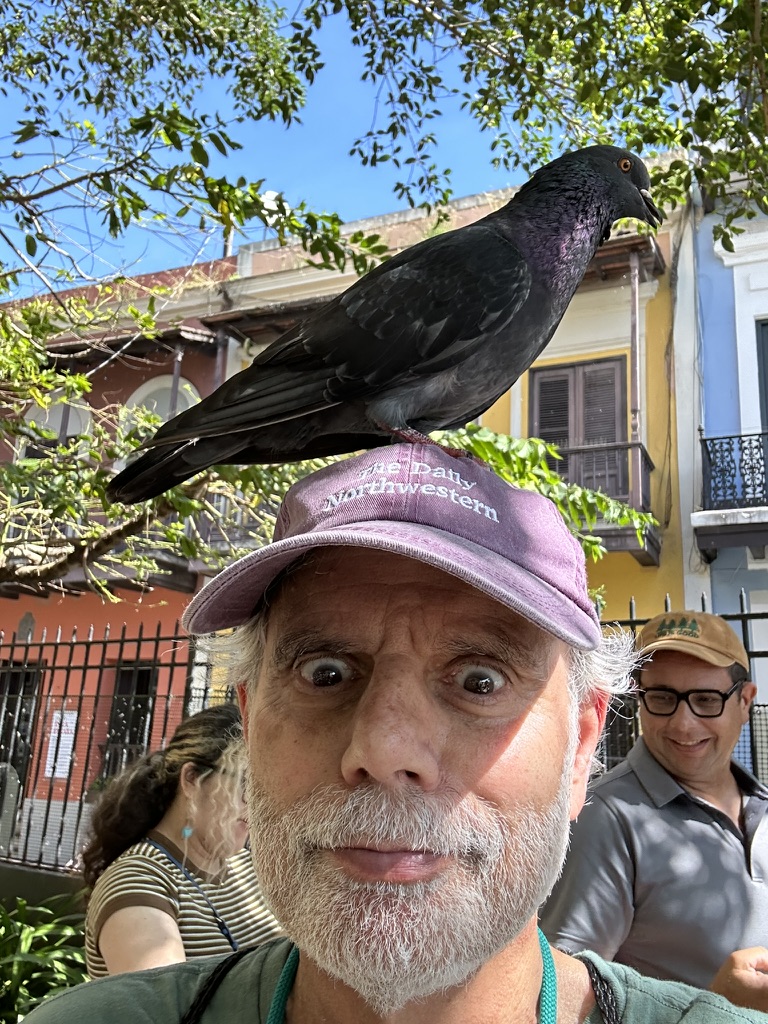Evanston RoundTable, April 25, 2013
Baseball holds a special place in American life. While it might not be as popular as it once was, our national pastime still connects deeply to American history, reflects the grace and beauty of sport at its best, and remains an apt metaphor for summer idylls and old-time values.
Baseball movies, like the game itself, can move viewers to tears or bring out the jeers and Bronx cheers. The new Jackie Robinson biopic, “42,” falls mostly into the latter category.
Robinson was, famously, the first African American to integrate the modern Major Leagues. His career, playing four sports at UCLA and breaking baseball’s color barrier with the Brooklyn Dodgers, is enshrined in the hearts and minds of baseball fans everywhere and is an important episode in the civil rights struggle.
The movie opens with newsreel footage from the end of World War II. A voiceover announces, “Life in the U.S. has returned to normal. For African Americans returning home, segregation still rules the land.” The voice is that of Wendell Smith, a friend of Robinson and a sports writer for a black newspaper, who serves as the story’s chronicler. The movie focuses on the months leading up to and including Robinson’s debut with the Dodgers in April 1947, confronting at first hand the racism that still permeated baseball and America – and not just in the South. At one point, when the Dodgers’ bus pulls up to a hotel in Philadelphia, the manager bursts out the door to insist the players cannot stay there, “not with him on the team.” Next day the Phillies’ manager taunts Robinson unmercifully with unprintable epithets and shameful slurs, such as: “Hey Robinson, haven’t you heard, this is a white man’s game. Get that through your thick monkey skull.”
When he hears the news, Dodgers’ president and general manager Branch Rickey wryly notes, “Philadelphia. That means ‘brotherly love’ in Greek.”
Rickey and Robinson are the central figures around which the movie revolves. As played by Harrison Ford with gravelly voice, bushy eyebrows, colorful bow tie and ever-present cigar, Rickey is the shrewd visionary who handpicks and mentors Robinson on how to navigate the torrent of racial abuse he will encounter.
At one point Robinson, played capably if a little earnestly by Chadwick Boseman as a proud and intelligent man who is highly aware of the pivotal role he is playing, protests, “Mr. Rickey, don’t you want a player with the guts to fight back?” Rickey growls in reply: “I want a player with the guts not to fight back.”
Of the two performances, Ford’s is the more interesting. In the same breath Rickey can discuss Greek word derivations, quote the Bible and recite the day’s gate receipts. When asked why he wants to shake up baseball’s color barrier, he replies rather flippantly that it’s all about the money.
“Dollars aren’t black and white. Every dollar is green,” he says. But later he admits that as a youngster he watched racism crush a black athlete and he didn’t do enough to prevent it.
That’s about as deep as the movie gets in probing the psyches of these two men, or the other players, some of whom, like Robinson’s teammate Eddie Stanky, were wonderfully supportive. “Maybe tomorrow we’ll all wear 42,” Stanky tells Robinson in front of a hostile crowd. “That way they won’t be able to tell us apart.”
What will appeal to old-time baseball fans are the wondrously realistic recreations of the old ballparks. When Robinson settles into the batters box and the camera pans up to frame a panoramic view of Ebbetts Field and the Polo Grounds in New York, Shibe Park in Philadelphia, Crosley Field in Cincinnati and Sportsman’s Park in St. Louis, the sensation of bringing the colorful past alive and looking out at these long-demolished and cherished shrines is thrilling.
But in general, “42” is content to skate the surface of this epochal story. A more nuanced telling would have been more interesting and surely more accurate. The movie is hampered by a corny and sentimental script and a gushing score meant to substitute for compelling storytelling and genuine emotion.
The facts do a better job speaking for themselves. At the closing credits moviegoers learn that Robinson’s number, the famous 42, is the only number throughout the Major Leagues to have been retired. And every April 15, which is Jackie Robinson Day in the Major Leagues, every player, coach and umpire wears number 42.
In the end, baseball finally did Jackie Robinson proud. But “42” is only a dull footnote to that storied career.





+ There are no comments
Add yours